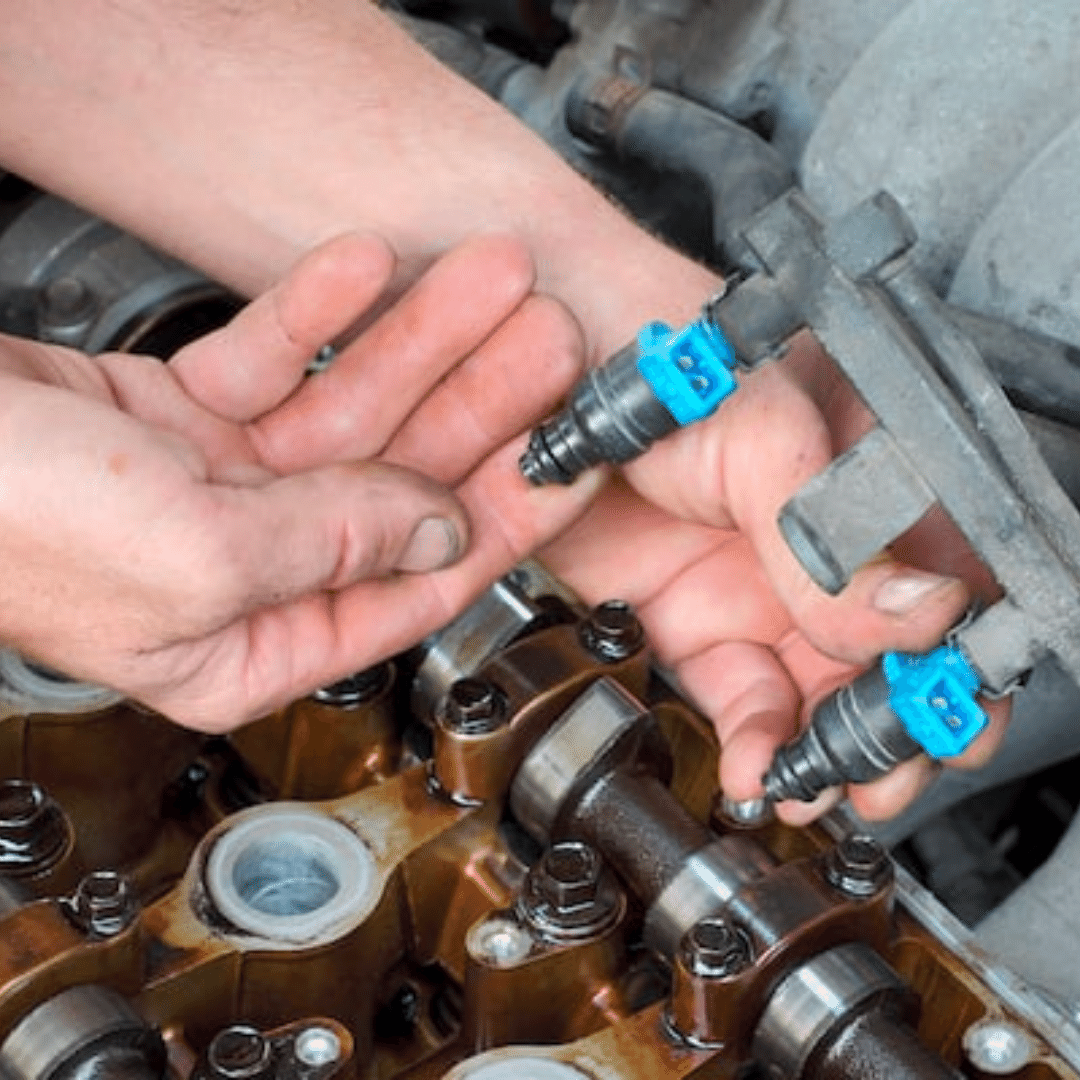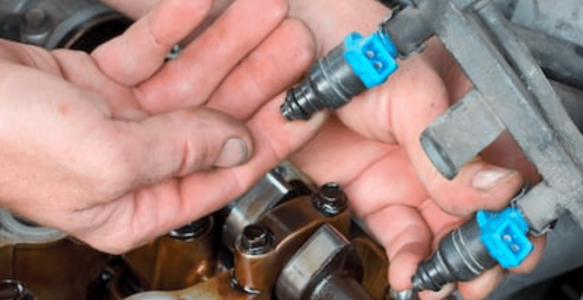When talking about machines, one of the most interesting aspects to analyze is the number of injectors present. Injectors are critical components of the engine’s fuel system, responsible for delivering the right amount of fuel into the intake air.
The quantity of injectors present on a car can vary depending on the type of engine and its specific characteristics. Typically, smaller, less powerful cars are equipped with fewer injectors, usually one per cylinder. But in general, there are about 4 to 8 fuel injectors in car.
In contrast, high-end, high-performance cars may come with multiple injectors per cylinder, in order to ensure optimal combustion and superior engine performance. The choice of the number of injectors to install on a car depends on several factors, such as engine power, energy efficiency and emissions.
- The number of injectors in a car depends on the type of engine it has. Petrol engines, for example, usually have a single injector that sprays fuel into the combustion chamber. In contrast, diesel engines can have one to multiple injectors, usually one injector for each cylinder of the engine.
- The number of injectors can affect engine performance. More injectors mean better fuel distribution and more efficient combustion, which can result in increased horsepower and better fuel economy.
- Injector maintenance is essential to ensure correct engine operation. Injectors can accumulate dirt deposits over time, which can hinder proper fuel delivery. Therefore, it is advisable to regularly clean or replace the injectors to maintain optimal performance of the machine.
Advantages
- Greater efficiency: A car with a greater number of injectors can distribute fuel more precisely and uniformly, improving engine efficiency and reducing fuel consumption.
- Greater performance: A greater number of injectors can ensure better power delivery, allowing the car to achieve higher performance and quicker response to acceleration.
- Reduced emissions: Thanks to better fuel distribution, a car with more injectors can reduce harmful emissions, thus contributing to environmental protection and compliance with pollution regulations.
- Improved reliability: More injectors can help reduce wear on individual components, distributing the workload more evenly. This can increase the life of the machine and reduce the likelihood of failure or malfunction.
Disadvantages
- Additional Cost: Having more injectors on a car can increase the cost of manufacturing and maintenance. Each injector requires regular cleaning and replacement, which can result in additional expenses for the vehicle owner.
- Greater Complexity: More injectors mean greater complexity in the car’s fuel system. This can lead to a greater likelihood of breakdowns or malfunctions, requiring greater attention and maintenance from the owner. Additionally, increased complexity can make injector problems more difficult to diagnose and repair.
How Many Fuel Injectors Does a Car Have
The cost to change 4 diesel injectors can vary depending on the mechanic or workshop you choose. On average, the cost to replace all 4 diesel injectors can be up to $500. However, it is always advisable to contact several professionals to obtain quotes and evaluate the most convenient options. It is important to keep in mind that the price can also vary depending on the model and make of the car.
The cost to replace diesel injectors can vary greatly depending on the mechanic or workshop you choose. It is advisable to request quotes from different professionals to find the most convenient option, also considering the model and make of the car.
How many injectors are there per cylinder?
A multipoint direct injection system has one injector for each cylinder, ensuring precise fuel distribution. This type of system is always phased, since the injection takes place during the compression phase of the engine. In practice, each cylinder is fueled with precision and efficiency thanks to dedicated injectors, optimizing vehicle performance.
A multipoint direct injection system with one injector for each cylinder ensures accurate fuel distribution, optimizing vehicle performance by injecting during the engine’s compression phase.
Electronic injection: discovering the secrets of car injector systems
Electronic injection is a fundamental system for the correct functioning of modern cars. This system, made up of sensors, control units and injectors, precisely regulates the opening and closing of the fuel injectors, thus ensuring optimal combustion and a reduction in harmful emissions.
The control units, thanks to the data provided by the sensors, calculate the exact moment in which to inject the fuel, taking into account various parameters such as engine temperature and rotation speed. Thanks to this technology, cars have become more efficient and environmentally friendly.
Thanks to electronic injection, modern cars are equipped with a system that precisely regulates the opening and closing of the fuel injectors, optimizing combustion and reducing harmful emissions. This technology has made vehicles more efficient and environmentally friendly.
Injectors: the beating heart of modern machines. How many are there and how do they work?
Injectors are the beating heart of modern machines, especially as regards internal combustion engines. These devices are responsible for providing the right amount of fuel to the engine, ensuring efficient combustion and reducing harmful emissions.
The injectors are usually located in the combustion chamber and work thanks to a high-pressure pump system. Depending on the type of engine and its specifications, the number of injectors can vary, but generally, they are found between 4 and 8 per engine.
Injectors, essential for internal combustion engines, provide the right amount of fuel for efficient combustion and reduction of harmful emissions. Positioned in the combustion chamber, they work thanks to a system of high pressure pumps. The number of injectors can vary from 4 to 8, depending on the engine.
From carburetor to injection: the technological evolution of injector systems in today’s cars
The technological evolution of injector systems in today’s cars has marked a significant turning point in the automotive sector. From a time when the carburettor was the undisputed protagonist, we have moved on to electronic injection, a system that offers numerous advantages.
Thanks to this technology, modern cars have become more efficient, reducing consumption and polluting emissions. Furthermore, the electronic injection allows more precise management of the engine, guaranteeing a smoother and more comfortable ride.
A change that has revolutionized the automotive industry, leading to increasingly high-performance and environmentally friendly cars. Thanks to the technological evolution of injector systems, modern cars have become more efficient, reducing consumption and polluting emissions, ensuring smoother and more comfortable driving.
In conclusion, the number of injectors present in a car depends on the type of engine and its specific characteristics. In petrol engines, there are usually one or two injectors, while in diesel engines the number can vary from four to eight, depending on the size and power of the engine itself.
Injectors play a fundamental role in the engine fueling process, ensuring correct mixing of fuel and air for optimal combustion. Their periodic maintenance and cleaning are essential to guarantee the correct functioning of the engine and to prolong its life over time.
In summary, the number of injectors in a car is an aspect to consider when evaluating the performance and efficiency of the vehicle.

